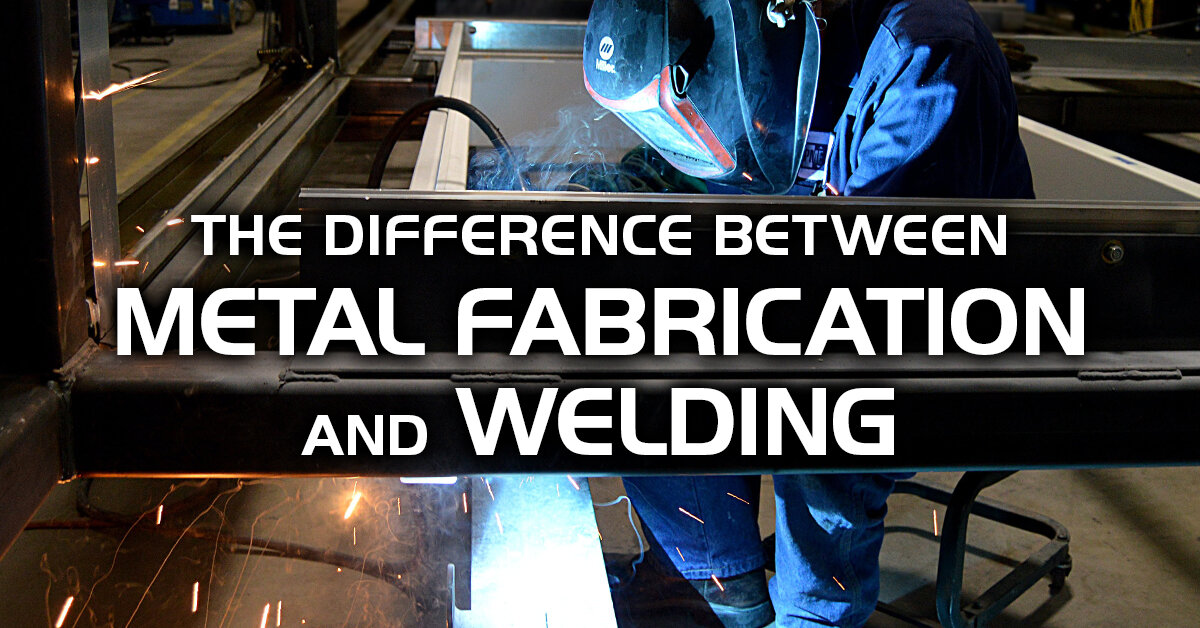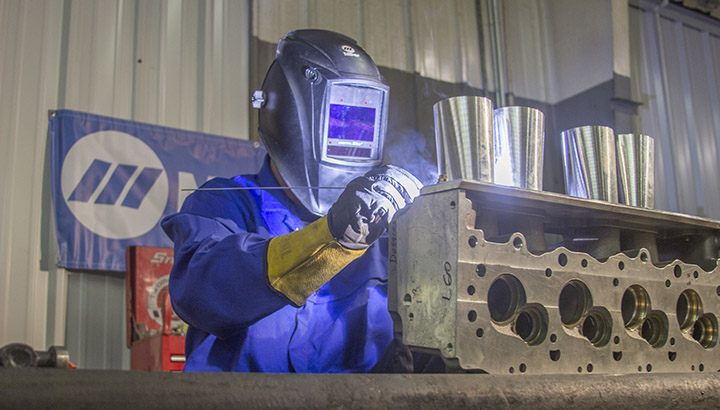Everything about Welding: Key Insights Into Techniques and Best Practices for Success
Welding encompasses a variety of methods, each suited for certain products and applications. Understanding these methods, such as GMAW, SMAW, and TIG, is important for attaining ideal outcomes. The appropriate tools and safety techniques can not be ignored. As prep work and fixing play important duties in the welding process, mastering these components can considerably improve the top quality of the end product. What are the crucial elements that ensure an effective weld?
Understanding Various Welding Techniques
Welding techniques incorporate a variety of techniques, each suited to particular applications and products. Among the most typical strategies are Gas Steel Arc Welding (GMAW), Secured Metal Arc Welding (SMAW), and Tungsten Inert Gas Welding (TIG) GMAW, likewise called MIG welding, is popular for its speed and versatility, making it excellent for slim materials. SMAW, or stick welding, is preferred for its simplicity and efficiency in outdoor environments, particularly with thicker steels. TIG welding uses accuracy and control, making it ideal for detailed work and non-ferrous steels (Montana Mobile Welding and Repair Belgrade Fabrication). Each method has its special benefits and factors to consider, permitting welders to pick the very best method based upon the task's requirements, product type, and preferred outcomes. Recognizing these methods is crucial for effective welding
Important Welding Tools and Devices
While numerous welding methods call for specific skills, the best equipment and devices are just as crucial for accomplishing top quality outcomes. Crucial welding equipment includes welding equipments, which vary relying on the strategy-- such as MIG, TIG, or stick welding. Safety gear, including helmets, aprons, and gloves, assurances safety and security and convenience throughout the procedure. Furthermore, components and clamps assist protect products in position, guaranteeing accuracy in welds. Consumables like welding rods, cord, and shielding gas are also crucial parts that affect the top quality of the weld. Furthermore, tools such as cutters and mills facilitate surface preparation and post-weld finishing, adding to an expert result. Buying high-grade tools inevitably improves the effectiveness and effectiveness of welding tasks.
Safety And Security Practices in Welding
Correct safety and security methods are essential in the welding sector to shield employees from possible threats. Welders must put on appropriate individual safety devices (PPE), consisting of safety helmets with proper shading, gloves, and flame-resistant apparel. Appropriate ventilation is essential to lower direct exposure to unsafe fumes and gases created during the welding procedure. Additionally, employees must be learnt the right handling of welding devices to avoid crashes. Fire precaution, such as keeping flammable products away from the welding location and having fire extinguishers easily available, are needed. Routine evaluations of equipment and work spaces can help identify potential dangers prior to they cause mishaps. By sticking to these safety and security techniques, welders can produce a safer working environment and decrease risks connected with their trade.
Readying Products for Welding
Preparing materials for welding is an essential step that considerably affects the high quality and integrity of the final item (Montana Mobile Welding and Repair Belgrade Welding). Proper preparation entails cleansing the surfaces to remove contaminants such as oil, dust, and corrosion, which can jeopardize the weld. Strategies such as grinding, fining sand, or making use of solvents are commonly utilized to attain a tidy surface area. In addition, ensuring that the products mesh snugly is essential; gaps can cause weak welds. It's additionally essential to consider the placement and positioning of the parts, as this will impact the ease of welding and the final end result. Choosing the suitable filler material and making sure compatibility with the base steels is crucial for accomplishing solid, durable welds.
Tips for Achieving High-Quality Welds
Attaining high-grade welds requires focus to information and adherence to best techniques throughout the welding procedure. Appropriate joint prep work is vital, guaranteeing surface areas are cost-free and clean from pollutants. Picking the ideal filler material and welding method based upon the base steels is important for excellent bonding. Keeping regular travel speed and angle while welding can advertise and prevent flaws harmony. In addition, regulating warm input is essential; excessive warm can cause bending and compromised joints. If needed, on a regular basis checking the welds throughout the procedure enables for instant modifications. Utilizing proper post-weld therapies, such as cleansing and anxiety alleviation, can improve the sturdiness and honesty of the weld, eventually making sure an effective result.
Troubleshooting Typical Welding Issues
Welding often offers challenges that can affect the top quality and integrity of the end product. Common issues such as porosity, irregular weld grains, and getting too hot can develop, each calling for details troubleshooting strategies. Recognizing these problems is important for welders to improve their skills and accomplish ideal results.
Porosity Problems Discussed
Although porosity can typically be neglected, it remains a critical problem in welding that can endanger the integrity of a completed item. Porosity refers to the visibility of tiny gas pockets within the weld bead, which can lead and damage the joint to premature failing. This issue typically emerges from contaminants, moisture, or incorrect securing gas coverage during the welding procedure. To reduce porosity, welders should confirm that the base products are clean and completely dry, utilize appropriate shielding gases, and maintain constant welding criteria. Frequently examining the equipment and atmosphere can additionally help identify potential concerns before they manifest in the weld. Addressing porosity successfully is necessary for achieving solid, sturdy welds that meet high quality standards.

Inconsistent Weld Beans
Inconsistent weld beads can greatly impact the quality and strength of a completed item. Various variables contribute to this issue, including inappropriate traveling rate, inaccurate amperage setups, and inconsistent electrode angles. When the welder relocates also quickly, a bead may appear narrow and do not have infiltration, while relocating too slowly can trigger too much accumulation. Furthermore, making use of the incorrect amperage can cause either undercutting or extreme spatter, both of which compromise weld honesty. The welder's method, such as inconsistent torch activity, can also cause uneven grain appearance. To mitigate these problems, welders need to focus on maintaining consistent, controlled movements and making sure appropriate tools setups to attain harmony in their welds. Uniformity is vital to achieving reliable and strong welds.
Overheating and Warping Issues
Excessive warm throughout the welding procedure can lead to substantial getting too oxy acetylene welding hot and warping issues, impacting the architectural integrity of the work surface. These troubles frequently show up as distortion, which can jeopardize alignment and fit-up, making more assembly testing. Factors adding to overheating include the selection of welding specifications, such as voltage and travel speed, along with the kind of product being bonded. To mitigate these issues, welders should you can try these out keep constant traveling speed and ideal warmth input while keeping track of the work surface temperature. Additionally, pre-heating or post-weld warm therapy can assist reduce anxieties triggered by rapid air conditioning - Belgrade. Normal inspection and adherence to finest techniques are vital in protecting against getting too hot and ensuring the durability and reliability of bonded frameworks
Regularly Asked Concerns
What Are the Occupation Opportunities in the Welding Market?
The welding market supplies varied occupation possibilities, including settings as welders, engineers, examiners, and educators. Professionals can work in production, building, aerospace, and vehicle industries, gaining from solid demand and competitive incomes in various duties.
Exactly How Can I Enhance My Welding Rate Without Sacrificing High Quality?
To enhance welding speed without compromising top quality, one should exercise efficient methods, keep equipment, maximize settings, and improve hand-eye sychronisation. Routine training and looking for comments can also greatly contribute to attaining much faster, high-quality welds.
What Accreditations Are Offered for Welders?
Various accreditations exist for welders, consisting of those from the American Welding Culture (AWS), the National Center for Building Education And Learning and Research Study (NCCER), and different industry-specific companies. These credentials improve employability and show ability efficiency.
How Does Welding Influence the Properties of Metals?
Welding influences the residential properties of steels by altering their microstructure, which can lead to adjustments in strength, solidity, and ductility. Warmth input and air conditioning prices throughout the procedure significantly influence these product attributes.
Can I Bonded Dissimilar Metals Together?

Comments on “Ways to minimize distortion in Montana Mobile Welding and Repair Welding projects”